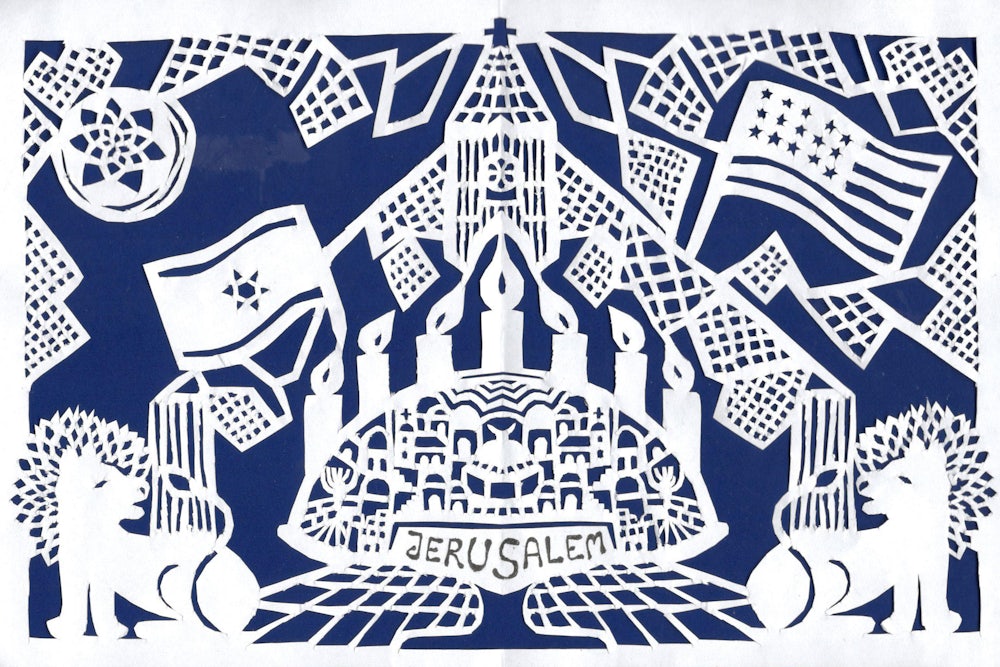- Joshua Cohen Israel's Season of Discontent
- Michael Koplow Fraught Relationship, Fated Bond
- Ruth Margalit The Perils of the Ultra-Orthodox Alliance
- Theodore Ross Who's Afraid of Criticizing Israel?
- Talia Lavin A Memoir of Disillusionment
- Jeremy Ben-Ami Don’t Give Up
- Jacob Bacharach A Homeland in America
- Gideon Levy What Israel Needs From American Jews
- Elisheva Goldberg The Intersectional Jewish-American
- Dennis Ross Israel's Prerogatives
- Batya Ungar-Sargon Two Ways of Being Jewish
- Yehuda Kurtzer The Deep Sources of a Great Divide
In 1948, The New Republic ran a story about Kibbutz Buchenwald, an agricultural cooperative that concentration camp survivors were building in what is now central Israel. “Six years ago,” one of the farmers said, “I never thought we would be alive. And now we are dancing. That is the dream.”
From the time of its founding that same year, Israel has remained profoundly important to Jews all around the world, particularly to the Diaspora in the United States. But the relationship between Israel and American Jews is shifting. Beyond the continued occupation of the West Bank and Gaza, events of the past year—including the U.S. government moving its embassy to Jerusalem and the Israeli Knesset passing a law establishing Israel as the “nation-state of the Jewish people”—have intensified many American Jews’ misgivings about a state that has begun to look more like Goliath than David.
Many American Jews now report that their position on Israel has become either ambivalent or outright negative. What does this mean for Israel’s role in American Jewish identity? The New Republic asked a dozen thinkers for their reflections on the evolving relationship between Israel and the Jewish Diaspora in America. Here are their thoughts, personal and political.
- Joshua Cohen Israel's Season of Discontent
- Michael Koplow Fraught Relationship, Fated Bond
- Ruth Margalit The Perils of the Ultra-Orthodox Alliance
- Theodore Ross Who's Afraid of Criticizing Israel?
- Talia Lavin A Memoir of Disillusionment
- Jeremy Ben-Ami Don’t Give Up
- Jacob Bacharach A Homeland in America
- Gideon Levy What Israel Needs From American Jews
- Elisheva Goldberg The Intersectional Jewish-American
- Dennis Ross Israel's Prerogatives
- Batya Ungar-Sargon Two Ways of Being Jewish
- Yehuda Kurtzer The Deep Sources of a Great Divide
